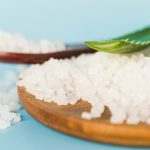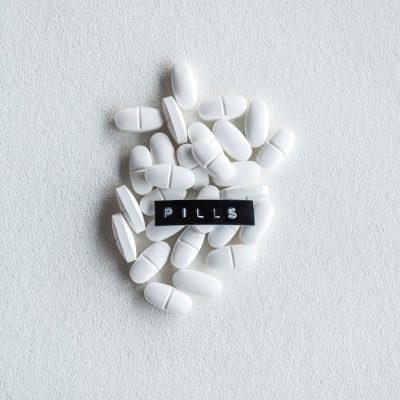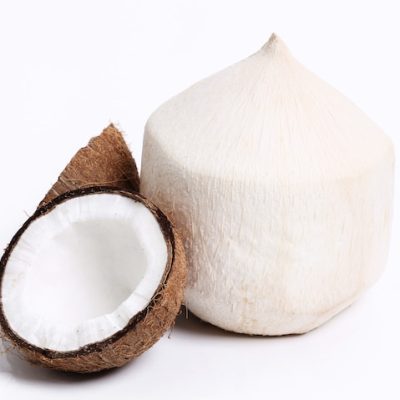Let’s talk about something really interesting – probiotics. You know, those friendly little helpers that keep our stomachs happy? Well, it turns out they might do more than that; they could also influence our emotions. Isn’t that fascinating?
This all revolves around the incredible link between our gut and our brain. So, are you ready to dive into this exciting topic, Probiotics for Mental Health? Let’s get started!
This post may contain affiliate links, which help keep this content free. Please read our disclosure for more information.
Let’s explore why people refer to the gut as our ‘second brain’. It might sound strange, but it relates to a fascinating concept called the gut-brain axis. Essentially, it’s a continuous communication system between our gut and our brain, constantly exchanging information.
The key players in this dialogue are the millions of microorganisms that reside in our gut. These little guys aren’t just hanging out; they’re actively working to maintain our gut health and play a crucial role in our overall well-being.
But here’s the exciting part: these microbes don’t just focus on our gut; they also affect our brain and central nervous system, influencing how they operate. Surprising, right? The gut seems to have a significant impact.
It’s essential to understand that it’s not just about having these microorganisms; it’s about keeping the right balance among them. When this balance is disrupted, it can lead to various issues, some of which may even relate to our mental health. That’s where probiotics come in, potentially helping to restore that vital balance.
In a recent study, women who took probiotics lost 50% more weight than those who didn’t. Your gut health and nutrient absorption are important. Don’t forget to include a daily probiotic in your routine.
Now, you might be asking, “How do probiotics fit into all of this?” Great question! These little champions, known as probiotics, are believed to significantly enhance our gut health. Think of them as reinforcements that help maintain the balance of our gut community.
Why is a balanced gut important? As we’ve seen, our gut and brain are in constant communication, and a healthy gut contributes to a healthier brain. It’s all part of a big, interconnected system. So, when our gut is in excellent shape, our brain tends to follow suit, which may lead to better mental health.
But don’t just take my word for it. Numerous scientific studies support this idea. Research indicates that consuming probiotics can improve mental health, potentially enhancing mood, reducing stress and anxiety, and even assisting with more serious mental health conditions.
Exciting, isn’t it? Of course, the mechanisms behind all of this are still being researched. Scientists are diligently working to uncover how probiotics positively affect our mental health.
While we don’t have all the answers yet, the current findings are promising and open up new possibilities for improving mental health.
As we delve into clinical trials and research studies, things become even more intriguing. The findings are starting to show encouraging signs regarding the role of probiotics in mental health. Researchers are investigating how probiotics can influence conditions like anxiety, depression, and mood disorders.
What they’re discovering is quite remarkable. There’s increasing evidence that probiotics may help manage these conditions. We’re seeing studies where participants report improvements in their symptoms after taking specific strains of probiotics.
However, let’s be realistic – while all this is promising, we’re still learning. Science involves asking questions, testing hypotheses, and then asking even more questions. We’ve made significant progress, but there’s still much to uncover about the connection between probiotics and mental health. It’s like a puzzle, and we’re gradually piecing it together. So, stay curious and keep an eye on this exciting area of research!
If all this talk about probiotics has sparked your interest, you might be wondering how to start incorporating them into your life. There are a couple of ways to introduce these helpful microorganisms into your system.
First, you could opt for natural sources through food. Certain foods are rich in probiotics and can be excellent additions to your diet. If you enjoy yogurt, you’re in luck! It’s one of the most accessible probiotic-rich foods available.
Other great options include fermented foods like kimchi, sauerkraut, and kombucha. They’re not only delicious but also fantastic sources of probiotics.
But if your taste buds aren’t quite ready for the tang of kimchi or kombucha, don’t worry! Probiotic supplements are another option. They can be a convenient way to get a good dose of probiotics, especially if you’re targeting specific strains for mental health benefits.
It’s important to remember that not all probiotics are the same. Different strains offer different benefits, and some are particularly helpful for mental health. So, before diving into the world of probiotics, do some research.
Check out reliable resources, read studies, and most importantly, consult your healthcare provider. They can guide you on what to look for and how to start safely.
And as with any change to your health routine, pay attention to how your body responds. Probiotics are generally safe, but everyone’s body is different, so it’s wise to be aware of any changes you notice.
Considering all the promising research, the future of probiotics in mental health treatment looks bright, don’t you think? We’re on the verge of a new frontier in mental health care.
Imagine a world where your mental health treatment plan could include not just traditional therapy or medication, but also specific probiotics tailored to your needs. Sounds innovative, right?
This isn’t just a dream. With ongoing research, it’s becoming a real possibility. We’re beginning to see the potential for probiotics to become an essential tool in our mental health toolkit, complementing traditional treatments and offering another way to manage mental health conditions.
Of course, we’re still in the early stages, and there’s much more to learn. But the future looks promising.
As we continue to explore and understand the incredible gut-brain connection and the role of probiotics, we’re paving the way for innovative approaches to mental health treatment.
In the midst of all this probiotic discussion, it’s only fair to mention something practical. If you’re considering adding probiotics to your life, one product to think about is Avocadu’s Gut-13 Probiotic.
Gut-13 isn’t your average probiotic. It’s packed with 13 different probiotic strains, like a full team working to balance your gut microbiome. Plus, it’s designed to promote optimal digestive health, which, as we’ve discussed, could also support your mental well-being.
The conversation about the gut-brain connection and the potential role of probiotics in mental health is ongoing, and that’s what makes it so captivating. There’s always something new on the horizon. So, stay tuned, take care of your health – both body and mind – and keep exploring.










